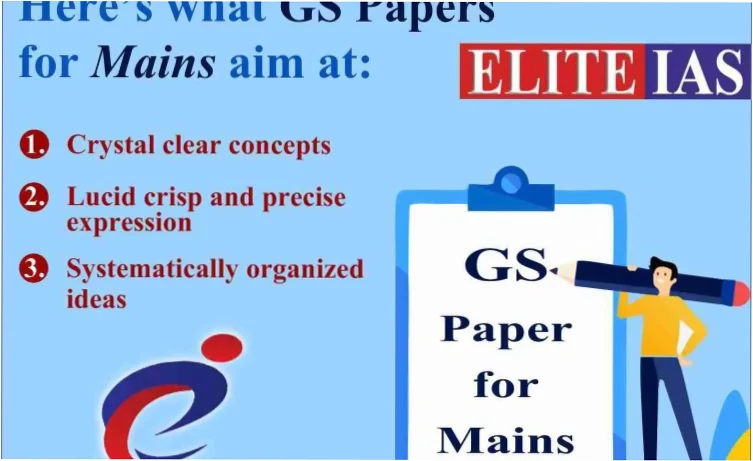Writing is an art that some inherit and others few acquire. Writing essay or mains exam for UPSC is not an unlimited reserve that remains with you forever but it is an art that matures with practise.
This practise is aptly being practised in certain areas in India. Being an advocate, I visited the nearby police station yesterday. I overheard something amusing.
There was a victim to report crime to the sub-inspector. The sub-inspector asked him ” where were you when your phone was snatched?” to which the man replied ” I got recently married. I have a beautiful wife and I love her a lot. It was the phone gifted to me by my wife. I was talking to her on call when the incident happened. I am pained that…..” and so he went.
The sub-inspector interrupted and repeated the question ” Where were you when the phone was snatched?” to which the man replied ” I started from home in the morning. I was on the left side of the road and I was speaking to my wife on call. My phone had important records in it and some intimate pictures of me and my wife and…..” and so he went.
Ah!! How aptly it defines the life of a frustrated common Indian who needs a little nudge to vent out his angst and misery. Be it any mode of communication; reading, writing or speaking and be it any reason; reporting a crime, texting your bae or scribbling in your semester exams. But is this how the “reserve” matures (venting out where it is not needed/not demanded) or does it grow with establishing the understanding of the circumstances, the demand of the question and then elaborating to the point
I don’t know about other exams and situations but the UPSC demands a straight approach in answering the questions. What matters is the quality and not the length of the answer. The DIRECTIVES guide you to understand the demand of the question like the “where”, “what” and “why” helps you communicate in daily life.
Now that you have understood exactly what this article is about, continue to read the following text to know
” How to write answer in mains exam? “:
● The Golden rule is, you will be able to write answers in a 3-hour pressure environment only if you have practiced enough. Begin from answering one question every day from the day your “serious” preparation starts and end up with writing full-length IAS test series right before your mains.
Believe me, the initial answers would be the most pathetic and time-consuming but with practice you sure can master the art and ride through the journey of pathetic to “preferred” UPSC answers as there is nothing like a “perfect answer”.
● It is important to keep yourself abreast with the meaning of DIRECTIVES used in the question. This requires a thorough and re-reading of the question, followed by breaking the question into parts to be able to answer it properly.
Eg: Examine the ‘XYZ’ welfare scheme launched by the government. Discuss the merits of the scheme with special emphasis on its impact on the two genders.
So, the directive here is ” Examine” and the subject of the question is the “xyz” welfare scheme about which you need to write.
Thereafter, the question specifically asks you to discuss the merits of the scheme while highlighting the gender aspect of the scheme.
Therefore, the important components of the question are DIRECTIVE, SUBJECT, MERITS, and SPECIAL APPEARANCE i.e. GENDER!
Article to Read:- Tips for IAS Mains Answer Writing
So, follow the above approach in every question and know about the three or four components first in your one or two readings of the question.
● Prepare a structure for your answers in your preparation phase and use the same throughout. Say, if you decide to follow INTRODUCTION, EXPLANATION, TWO SIDES OF COIN AND WAY FORWARD approach, just fit in the content under these heads in your every answer. Of course, with little modifications.
● The focus should not be on the quantity but the quality of content and consider following a broader and multidimensional approach.
So, if the question is on “water crises” in India, don’t limit yourself to one aspect, maybe, over-extraction of underground water. Rather, use the opportunity to answer from the lens of a generalist and commoner.
So, as a common man what do you think is leading to water stress? Is it the over-extraction of water alone or behavioral and lifestyle pattern, infrastructure and political issues, industrial use, and contamination, water-intensive cropping etc are the few other reasons as well?
And if it talks about the impact of water crises then is it only the accessibility that is suffering or the health deteriorating or our dependence on other countries for water increasing or there is a fear of displacement of few communities because of loss of habitat are few other factors to be considered?
Remember, the answer should provide an insight into the topic while maintaining the balance and rationality in answer writing.
● Use the power of visualization You don’t have to sketch your favorite “avenger” on paper but sure you can use flowchart/map outline to make your point count. After all, the examiner won’t be interested in your narration but he means business.
More the number of papers he checks, more the money he makes. So, be logical and be focused.
Remember, more than the answer it is the “question” you should keep in mind while writing in mains.
Well, As I said, the words are precious and limited; I reserve the rest of my advice for another article where perhaps it will be more valued. This much should suffice for now!
Article to Read:-


